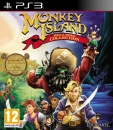Kristof81 said:
While the income difference will have some impact on sales (around 75% of avg. American salary), I think it has a lot to do with consumer preferences. Me and my friends are very selective when it comes to new games and we have no issues with picking an "old" game, instead of the brand new, if we haven't had a chance to play them before and we know for sure they're good. Sometimes it's not even a question of price, like with Nintendo games, which pretty much are never on sale. Saying that, don't forget that games in Europe are more expensive than in US, thanks to higher tax rates. It's not as bad as in Australia, but still. |
I don't think the Salary difference has any thing to do with it. Because Salary is one thing , but the social systems like healthcare, pension system etc is much better arranged in most western European (and even with a lot of the southern/eastern European) countries. So overall I think the money people have after tax, healthcare, house cost and pension is not very different from Europe to people from the USA. I think that most posters here are right when they say: Game prices are much higher in Europe(at launch) and the average European doesn't really care about the newest game anymore. Next to this, the price drops normally quite fast (only nintendo games seems to keep same price for a few years). So why would you buy a game at full price if you can get it after only a few weeks for much less money?
Ofcourse there are people in Europe aswell who always want to have the newest game on the launch date/time. But I think the big hype of a few years back is over here. (I remember the period of GTA IV, COD MW3 and release of the PS3 and Xbox 360, where many people in Europe where in a big row at night for the releases. But after this, I've never seen such thing anymore.
Last edited by kappie1977 - on 31 August 2018


































































